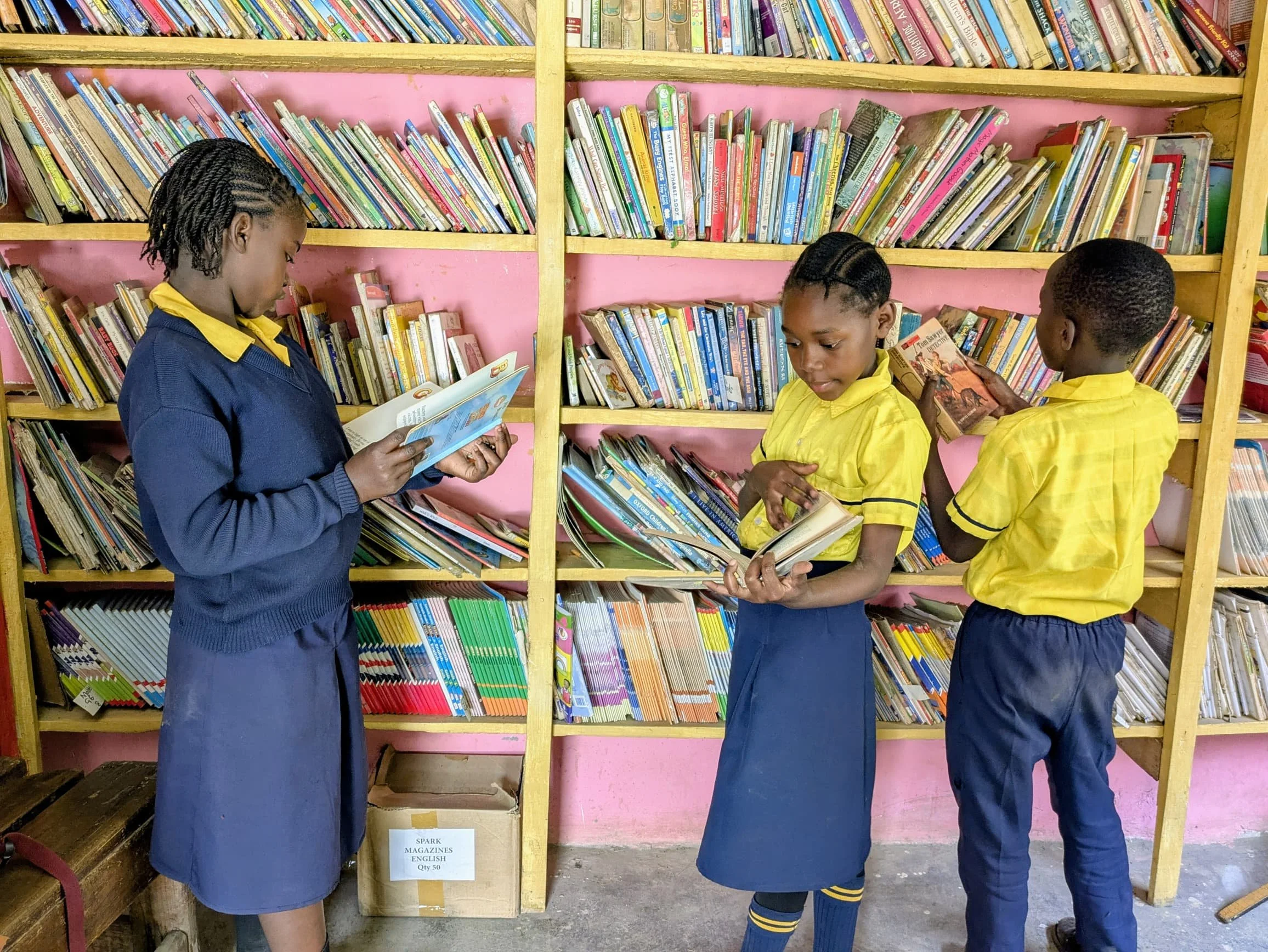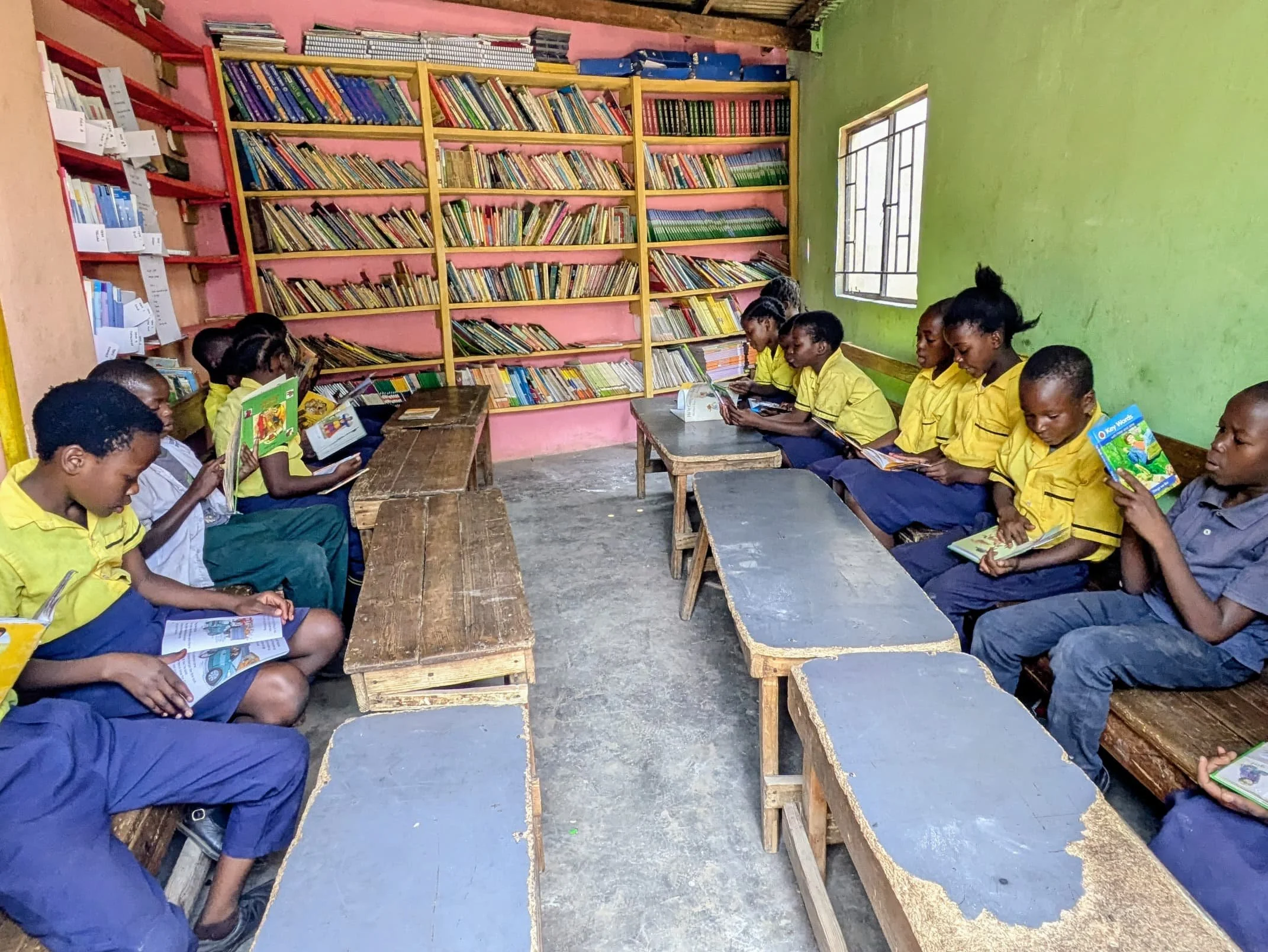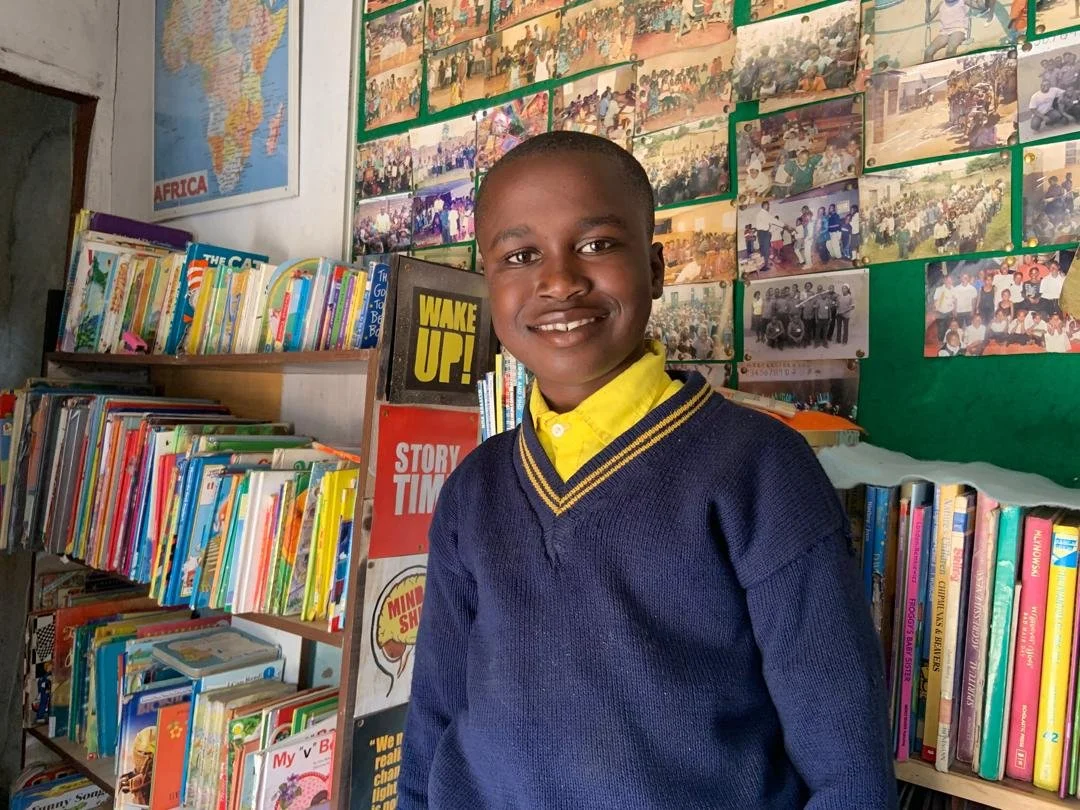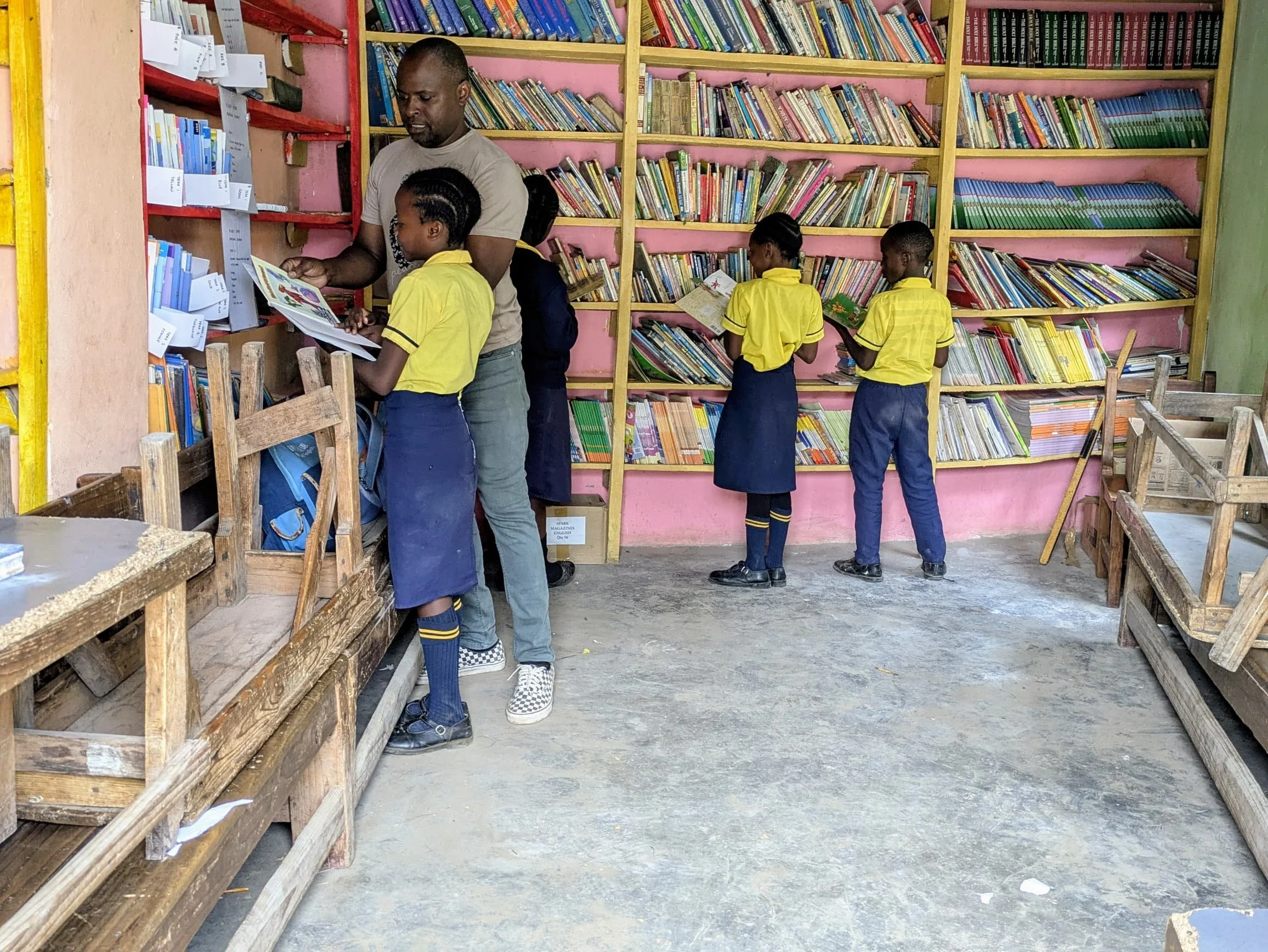For many generations, stories in Zambia have been told rather than read. This oral tradition is how information, folklore, beliefs, and values are passed down. Mathews grew up in this rich culture of spoken stories, learning through the voices of his family and neighbors. At the age of six, an English woman who lived next door took a keen interest in him and taught him how to read. While his peers were shaped mainly by the oral tradition, Mathews was privileged to learn to read. As he practiced, his love for fiction books grew.
“Growing up, I loved books. In fact, books were my friends,” he recalled with a smile. “I would spend hours in my bedroom, completely immersed in stories, sometimes imagining myself as one of the characters. By the time I was ten, I had even written my own book, which was about the sea. Most of the books I read were by English authors, so naturally, my story was set in Great Britain. I never shared it with anyone because I thought I would get into trouble, but that’s how much those stories meant to me.”
This early love of reading shaped Mathews’ imagination and understanding of the world. While oral traditions taught him lessons about community, values, and heritage, books offered him a gateway to explore new worlds, ideas, and perspectives, a combination that would later inspire his approach as a teacher and school director.
Fast forward, Mathews founded Twin Palm Community School in 2004 and actively teaches in the classroom. He recently took a bold step of transforming one of his classrooms into a small but vibrant school library. This milestone marks more than just a physical change in his school; it represents a deep shift in belief, inspired by the passion to develop a reading culture in his community.
In Zambian schools, reading is all about mastering the subjects you will be tested on at the end of the year. Reading for fun is not widely practiced, and Mathews assumed his children wouldn’t be interested in storybooks. However, during a visit to the Impact One Library with his students, he realized just how wrong he was.
“I will always remember that day,” he said. “It was during the early days when I started doing library visits. Their faces lit up the moment they stepped into the library. They hopped from one shelf to another, flipping through pages, whispering to each other, completely absorbed. I didn’t know that books could get my students this excited.”
Another significant shift happened for Mathews when he passed through our Library on Community Day and saw books being lent out to hundreds of children from Ng’ombe. The sight made him both fearful and intrigued. He was amazed that we were able to lend books not only to our partner schools but also to the wider community. He wondered how all the books were being tracked, and when he saw the system we used to manage our resources, his fears began to ease. It was at that moment that he decided to put his hesitation aside. Mathews began collecting books little by little, stacking them in corners and boxes as he waited for the right moment. Yet fear still lingered, fear that students might damage the books, that the idea might fail, or that perhaps he wasn’t ready.
A student poses in the old office library
Eventually, he recognized that his hesitation was standing in the way of growth, both his and his students’. With encouragement from the Impact One mentoring team, he set up a small bookshelf behind the desk in his office. However, there wasn’t enough space to display all the books or interact with enough children. Using the donor engagement skills he learned at Impact One trainings, he created a short video inviting donors to help transform one of his classrooms by fixing the roof, painting the walls, and adding shelves. When the work was complete, he was finally able to display all the books he had collected over the years on the new shelves. On October 16th, the library was officially opened to both the school and the community.




“The excitement from my students was tangible,” he said. “They couldn’t wait to borrow books. That day, I realized how much potential I had been holding back because of fear. Now we have a simple but functional system to lend out books to our students and community. Our children are practicing reading, sharpening their comprehension skills, and improving their fluency. I only wish I had done this sooner.”
Mathews attributes this transformation to Impact One’s model of mentorship and empowerment the “I Do. We Do. You Do.” approach that encourages educators to learn, collaborate, and then take ownership.
“I saw how Impact One modeled a culture of reading for fun,” he said. “They didn’t just stop at teaching us literacy skills; they showed us that reading can be enjoyable. They lent out books to our schools and to the community at large. This has influenced how I now approach reading in my school and community. I want my students to experience the same excitement I had growing up. To read not because they have to, but because they love to. Impact One has passed the baton to us. It’s now up to us to change the narrative from being a culture that doesn’t read to one that reads for fun. I would encourage other school directors to overcome their fears and take that first step toward opening a library in their schools. It’s worth it.”
Mathews helps a student select a book to read
Public libraries and school libraries are a rare sight in Zambia. But by modeling best practices, Impact One is turning the tide. Twin Palm has now become the second school in the Chikondano Network of Schools to open a library, and we’re excited to see more follow!



